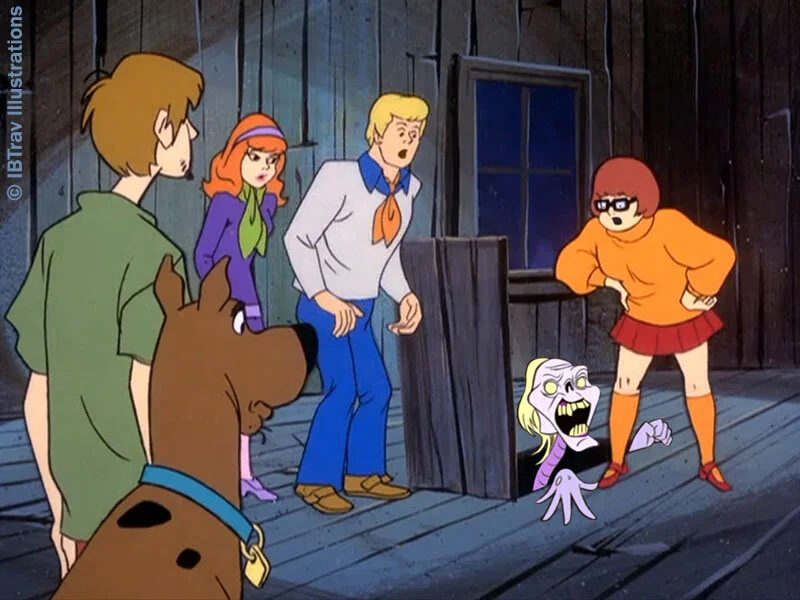Nightmare in The Mystery Machine

Our favorite things this week include Scooby Doo reimagined and Devo re-released.
Our favorite things this week include Scooby Doo reimagined and Devo re-released.
Scooby Gets Nightmares: The Scooby-Doo cartoons are a childhood staple. The scares are always delivered comically, and the main characters are a bunch of teenagers who run around solving crimes and showing up adults. Throw a talking dog into the mix and it’s a done deal. I was an obsessive fan of the show as a kid, so it was a pleasant trip down memory lane when I discovered character illustrator Travis Falligant’s depictions of Scooby-Doo scenes with contemporary horror film characters instead of all the Old Man McGillicudddys, who would have gotten away with it if it wasn’t for those meddling kids. Some of his renderings include such famous villains as Jason Voorhees and Freddy Krueger. My personal favorite is an American Psycho-era Christan Bale chasing the gang down a hallway. (Lauren Keenan)
Devo Then and Then: Today, Devo is probably best remembered for “Whip It!” as part of the panoply of ‘80s bands with impractical looks and sounds with the roots and staying power of a Rubik’s Cube. The recently re-released video album The Men Who Make the Music from 1978 restates the band’s importance in the electronic music and punk story. Brian Eno brightened their sound for Q: Are We Not Men? A: We Are Devo!, but even then there's a deliberate layer of electronic grime every bit as abrasive as anything Martin Rev generated for Suicide. Combined with the language of pseudo-science, Devo songs from this era are every bit as destabilizing as anything by The Ramones.
Similarly, the videos shot for The Men Who Make the Music have a budget-dictated B-movie visual grit, as Mark Mothersbaugh and Gerald Casale generate an unsettling air with unusual camera angles and costumes you could make at home if you could think of them. But you wouldn’t, and that domestic-but-not quality, like so much of David Lynch’s imagery, is creepy as it’s familiar and alien at the same time. They make good use of masks and anything that obscures the face--even swim goggles and hockey helmets. Everybody's got something to hide, sometimes in stocking masks.
This video album also includes clips of early Devo live, and the footage has all been available for years. The new DVD also includes “Butch Devo and the Sundance Gang,” a live show from 1995 that was released with a picture disc for National Record Store Day earlier this year. For me, it undoes much of the excitement of The Men Who Make the Music as the members in ‘20s prison garb seems simply odd. Roughly 20 years later, guys who are thickening up in baggy black and white stripes don’t look like possible double agents in the clandestine clone war the way young Devo did—a pleasant byproduct of having two sets of brothers in the band. The performances are good and the sound remains smartly brittle and textured, but it presents the band that Devo’s ’80s albums did—one trying unsuccessfully to live up the air of uncertainty it created out of the box. (Alex Rawls)






